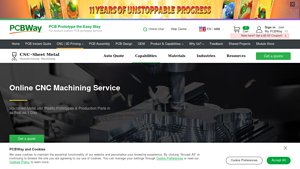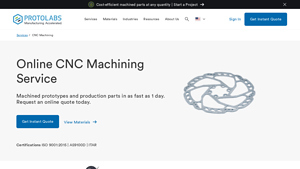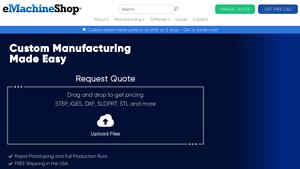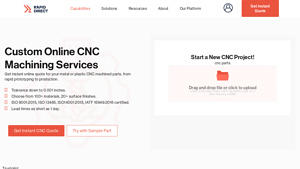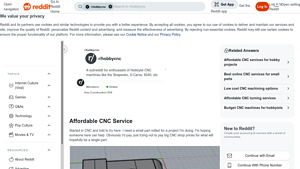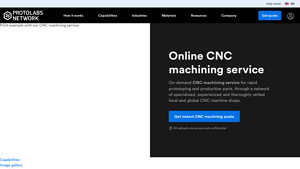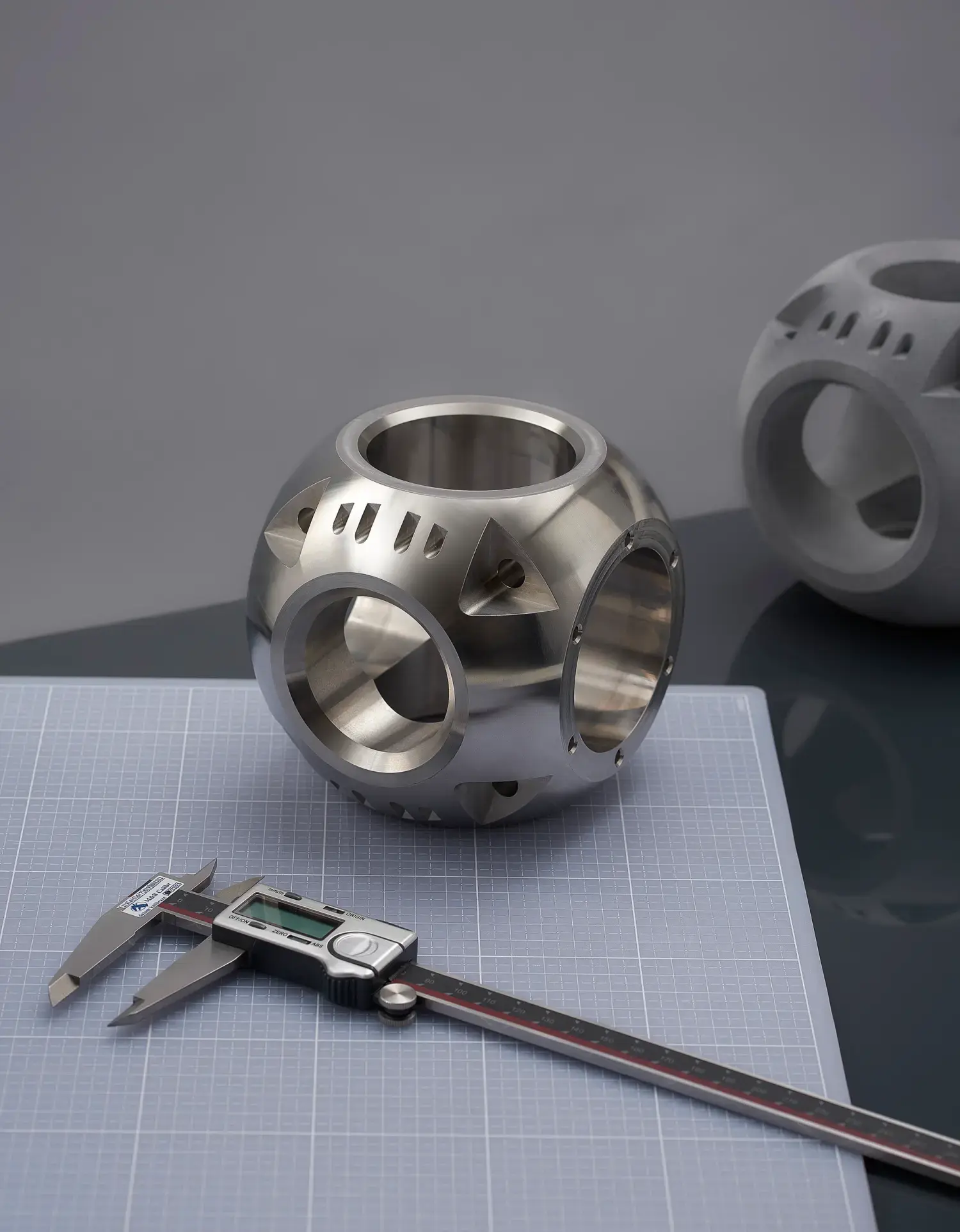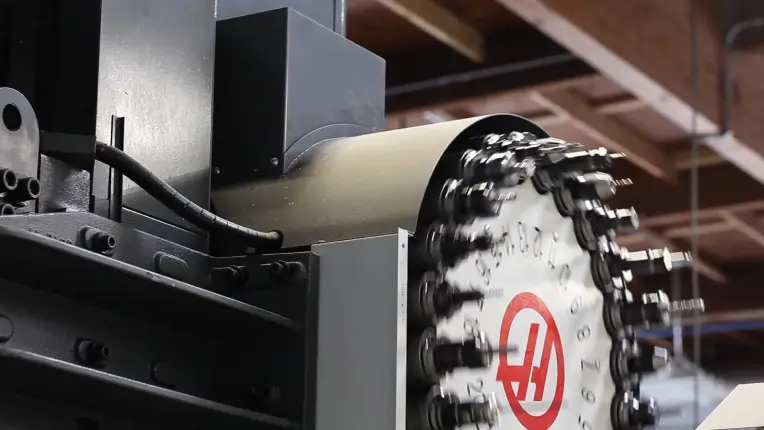Top 8 Online Machining Service Manufacturers & Suppliers List
1. PCBWay – CNC Machining & 3D Printing Services
Domain: pcbway.com
Registered: 2012 (13 years)
Introduction: CNC Machining Service includes CNC Milling (3-, 4- & full 5-axis), CNC Turning, and various 3D Printing services (SLA, DLP, FDM, SLM, SLS, PolyJet). Materials used in CNC machining include metals (Aluminum, Stainless steel, Brass, Copper, Titanium, Mild steel, Alloy steel, Tool steel, Spring steel) and plastics (ABS, Polycarbonate, Nylon, Polypropylene, POM, PTFE, PMMA, Polyethylene, PEEK, Bakelit…
2. Protolabs – CNC Machining Services
Domain: protolabs.com
Registered: 2006 (19 years)
Introduction: Online CNC Machining Service offering cost-efficient machined parts at any quantity. Capabilities include CNC Milling and CNC Turning, with production machining and precision machining options. Machined prototypes and production parts can be delivered in as fast as 1 day. Materials available include various grades of plastics and an extensive library of metals such as Aluminum, Brass, Copper, Stai…
3. eMachineShop – Custom Manufacturing Services
Domain: emachineshop.com
Registered: 1999 (26 years)
Introduction: eMachineShop offers custom manufacturing services including CNC machining, sheet metal fabrication, injection molding, and 3D printing. Key features include:
– Fast quotes and free CAD software.
– Custom sheet metal parts available in as little as 3 days.
– Supports various CAD file formats: STEP, IGES, DXF, SLDPRT, STL, AMF, CGR, HCG, HSF, IFC, PRT, PRTDOT, SAT, SLDLFP, VDA, WRL, XAML, X_B, OBJ.
…
4. PartsBadger – CNC Machining Services
Domain: parts-badger.com
Registered: 2016 (9 years)
Introduction: PartsBadger offers a variety of online CNC machining services including multi-axis machining, Swiss CNC machining, surface finishes, injection molding, 3D printing, sheet metal services, urethane casting, and investment casting. Key features include:
– Instant Quote system for immediate pricing based on dimensions, material, finish, and features.
– Rapid Quote for custom quotes in 2-6 hours, ide…
5. 3DEXPERIENCE – CNC Machining Service
Domain: 3ds.com
Registered: 1995 (30 years)
Introduction: CNC Machining Service by 3DEXPERIENCE Make is an On-Demand Manufacturing platform connecting designers or engineers with industrial CNC Machining service providers, primarily in North America and Europe. The service is suitable for small and large runs, including mockups and prototypes. Key features include an instant quote engine providing quotes in seconds, secure payments, and protected IP with…
6. RapidDirect – Custom CNC Machining Services
Domain: rapiddirect.com
Registered: 2010 (15 years)
Introduction: Online CNC Machining Services for Custom Parts, Instant CNC Quote, Capabilities include CNC Machining, CNC Milling, CNC Turning, Injection Molding, Plastic Injection Molding, Injection Mold Tooling, Sheet Metal Fabrication, 3D Printing, Vacuum Casting, Die Casting, Finishing Services, Rapid Prototyping, On-Demand Manufacturing Solutions. Industries served: Aerospace, Automotive, Consumer Products,…
7. Reddit – Affordable CNC Services
Domain: reddit.com
Registered: 2005 (20 years)
Introduction: This company, Reddit – Affordable CNC Services, is a notable entity in the market. For specific product details, it is recommended to visit their website directly.
8. Hubs – On-Demand CNC Machining Services
Domain: hubs.com
Registered: 1998 (27 years)
Introduction: Online CNC Machining Service: On-demand CNC machining service for rapid prototyping and production parts through a network of specialized, experienced, and vetted local and global CNC machine shops. Capabilities include CNC milling (3 & 5 axis), CNC turning, and additional services like sheet metal fabrication and injection molding. Tolerances down to ±.020 mm (±.001 in) and lead times from 5 busi…
Introduction: Navigating the Global Market for online machining service
In today’s fast-paced global economy, sourcing reliable online machining services can be a daunting challenge for B2B buyers, particularly those in regions like Africa, South America, the Middle East, and Europe, including Brazil and Germany. The complexity of navigating diverse suppliers, varying quality standards, and fluctuating costs can lead to uncertainty in procurement decisions. This guide aims to demystify the online machining service landscape, providing a comprehensive overview of the various types available—ranging from CNC milling and turning to advanced 3D printing.
We will explore critical factors such as applications across industries, supplier vetting processes, and cost considerations to empower international buyers in making informed purchasing decisions. With detailed insights into quality certifications, material options, and the latest machining technologies, this guide serves as a valuable resource for companies looking to enhance their product development while minimizing risks.
By offering clarity on the intricacies of online machining services, this guide equips B2B buyers with the knowledge they need to confidently engage with suppliers, ensuring that they can secure high-quality components that meet their project specifications and timelines. Whether you’re a startup or an established enterprise, understanding the global market for online machining services is essential for driving efficiency and innovation in your manufacturing processes.
Understanding online machining service Types and Variations
| Type Name | Key Distinguishing Features | Primary B2B Applications | Brief Pros & Cons for Buyers |
|---|---|---|---|
| CNC Milling | Utilizes rotating cutting tools for material removal; available in 3, 4, and 5-axis variations. | Aerospace, automotive, electronics | Pros: High precision, versatile materials; Cons: Setup time can be lengthy. |
| CNC Turning | Employs a rotating workpiece and stationary cutting tool; ideal for cylindrical parts. | Shaft manufacturing, medical devices | Pros: Efficient for round parts, good surface finish; Cons: Limited to rotational geometries. |
| CNC Routing | Similar to milling but primarily used for softer materials like plastics and wood; can handle large sheets. | Signage, furniture, and prototype creation | Pros: Cost-effective for large parts; Cons: Less precision than milling for metals. |
| Additive Manufacturing | Builds parts layer by layer; includes 3D printing technologies like SLA and SLS. | Prototyping, custom tooling, complex geometries | Pros: Complex designs, less waste; Cons: Slower production rates, material limitations. |
| Sheet Metal Fabrication | Involves cutting, bending, and assembling metal sheets; often includes CNC technologies. | Enclosures, brackets, automotive parts | Pros: Cost-effective for high volumes, robust designs; Cons: Requires specific tooling for each project. |
What Are the Characteristics of CNC Milling Services?
CNC milling services utilize advanced computer-controlled machines to remove material from a workpiece, resulting in highly precise components. This method is suitable for a wide range of materials, including metals and plastics, making it versatile for various industries such as aerospace and electronics. B2B buyers should consider lead times, material options, and the complexity of their designs when selecting this service, as setup times can be significant.
How Does CNC Turning Differ from Other Machining Services?
CNC turning is characterized by its ability to create cylindrical parts through the rotation of the workpiece against a stationary cutting tool. This method is particularly effective for producing shafts and other round components commonly used in the automotive and medical sectors. Buyers should focus on the specific geometries required for their applications, as turning is limited to rotational shapes but offers excellent surface finishes and efficient production rates.
What Are the Advantages of CNC Routing for B2B Applications?
CNC routing is primarily used for softer materials like plastics and wood, making it ideal for applications such as signage and furniture. This service allows for the efficient processing of large sheets, offering a cost-effective solution for creating large parts. However, B2B buyers should be aware that while routing is economical, it may not achieve the same precision as CNC milling for metal components.
Why Consider Additive Manufacturing for Custom Parts?
Additive manufacturing, including various 3D printing technologies, builds parts layer by layer, allowing for complex geometries that traditional machining methods may struggle to achieve. This service is particularly useful for prototyping and custom tooling. Buyers need to consider the material capabilities and production speed, as additive processes can be slower and may not be suitable for high-volume production.
How Does Sheet Metal Fabrication Fit into Online Machining Services?
Sheet metal fabrication combines cutting, bending, and assembly processes to create parts from metal sheets. This method is often supported by CNC technologies, making it efficient for producing enclosures and brackets. For B2B buyers, the focus should be on tooling requirements and production volumes, as high-volume projects can benefit significantly from the efficiencies of sheet metal fabrication.
Key Industrial Applications of online machining service
| Industry/Sector | Specific Application of online machining service | Value/Benefit for the Business | Key Sourcing Considerations for this Application |
|---|---|---|---|
| Aerospace | Precision components for aircraft and drones | High-quality, lightweight parts that enhance performance | Certification standards (e.g., AS9100D), lead times, and material specifications. |
| Medical Devices | Custom surgical instruments and implants | Tailored solutions that meet stringent regulatory standards | Compliance with ISO 13485, material traceability, and rapid prototyping capabilities. |
| Automotive | Engine components and custom tooling | Improved efficiency and reduced production costs | Tolerance requirements, high-volume production capabilities, and material selection. |
| Electronics | Custom housings and enclosures for devices | Enhanced product design and faster time-to-market | Surface finish options, precision tolerances, and rapid turnaround times. |
| Robotics | Parts for robotic arms and automation equipment | Increased reliability and performance in operations | Material compatibility, design complexity, and production scalability. |
How is Online Machining Service Used in Aerospace Applications?
In the aerospace industry, online machining services are pivotal for creating precision components such as engine parts and lightweight structures for aircraft and drones. These components often require strict adherence to safety and performance standards, necessitating high-quality materials and precision machining capabilities. International buyers, particularly from regions like Europe and the Middle East, must consider certifications like AS9100D and ensure that suppliers can meet tight deadlines without compromising quality. The ability to quickly prototype and iterate designs is also crucial in this fast-paced sector.
What Role Does Online Machining Service Play in Medical Device Manufacturing?
Online machining services are essential for the production of custom surgical instruments and implants in the medical device sector. These parts must comply with rigorous regulations, such as ISO 13485, which governs quality management systems in medical manufacturing. Buyers from regions like Africa and South America should prioritize suppliers who can provide material traceability and validation processes, ensuring that the final products meet both safety and efficacy standards. Rapid prototyping capabilities also allow for quick adjustments to designs based on clinical feedback, enhancing product development cycles.
How Does Online Machining Service Benefit the Automotive Sector?
In the automotive industry, online machining services facilitate the production of engine components and custom tooling designed to enhance manufacturing processes. These services enable manufacturers to achieve improved efficiency and reduced production costs by providing high-quality parts with precise tolerances. International buyers must consider factors such as material selection, compliance with industry standards, and the supplier’s capacity for high-volume production. The ability to source components quickly can significantly impact time-to-market, which is critical in the competitive automotive landscape.
What Applications Exist for Online Machining Services in Electronics?
The electronics industry leverages online machining services to produce custom housings and enclosures that protect sensitive components. These machined parts not only improve product design but also expedite the manufacturing process, allowing companies to bring products to market faster. Buyers, especially in regions like South America and Europe, should focus on suppliers who offer a variety of surface finish options and can meet precision tolerances. The ability to rapidly produce prototypes and iterate designs is vital for staying competitive in this dynamic sector.
How is Online Machining Service Used in Robotics?
In robotics, online machining services are critical for creating parts for robotic arms and automation equipment. These components must be durable and reliable, contributing to the overall performance of robotic systems. Buyers need to consider material compatibility and the complexity of designs when sourcing parts internationally. Additionally, suppliers should demonstrate scalability in production to accommodate varying project sizes. The efficiency gained from using precision machined parts can significantly enhance operational capabilities in various robotic applications, making it a valuable investment for businesses.
3 Common User Pain Points for ‘online machining service’ & Their Solutions
Scenario 1: Navigating Complex Project Specifications
The Problem: B2B buyers often encounter challenges when providing complex project specifications for machining services. The intricacies involved in detailing the dimensions, tolerances, and material requirements can lead to misunderstandings or miscommunication with suppliers. This not only delays the manufacturing process but can also result in costly errors if the final product does not meet the intended specifications. For international buyers, language barriers and different technical standards can exacerbate these challenges, leaving them frustrated and unsure of how to proceed.
The Solution: To overcome this pain point, buyers should invest time in creating comprehensive and precise documentation. Utilize CAD (Computer-Aided Design) software to generate detailed drawings that can be easily shared with the machining service provider. Accompany these drawings with a clear list of specifications, including tolerances, surface finishes, and material certifications. Engage directly with the service provider’s support team to clarify any doubts or concerns regarding the specifications before finalizing the order. This proactive communication will minimize misunderstandings and set the foundation for a successful project outcome.
Scenario 2: Managing Lead Times and Production Schedules
The Problem: One common frustration among B2B buyers is the unpredictability of lead times associated with online machining services. International buyers, particularly those operating in fast-paced industries, often find that unexpected delays can jeopardize their production schedules. Factors such as customs clearance, shipping logistics, and varying production capacities of suppliers can lead to delays that are difficult to manage. This unpredictability can strain relationships with clients who rely on timely delivery of products.
The Solution: To effectively manage lead times, buyers should establish a clear timeline at the outset of the project and communicate it with the machining service provider. When sourcing services, look for suppliers that offer transparent lead time estimates and can provide updates throughout the production process. Consider selecting suppliers with local or regional facilities to reduce shipping times and customs-related delays. Additionally, implementing a buffer period in your project schedule can help accommodate any unforeseen delays, ensuring that you remain on track to meet your commitments to clients.
Scenario 3: Ensuring Quality and Compliance Standards
The Problem: For many B2B buyers, especially in regulated industries such as aerospace or medical, ensuring that machined parts meet stringent quality and compliance standards is paramount. The risk of receiving non-compliant or subpar products can lead to significant financial losses, safety concerns, and damage to brand reputation. International buyers may struggle to verify the certifications and quality control measures of overseas suppliers, creating a lack of trust in the sourcing process.
The Solution: To address this concern, buyers should prioritize working with online machining services that are certified to relevant quality management standards, such as ISO 9001 or AS9100. Before placing an order, request documentation that verifies the supplier’s compliance with industry-specific standards. Implement a robust quality assurance process that includes post-production inspections and material certifications. Additionally, consider using suppliers that offer quality guarantees and the option for third-party inspections. Establishing a clear quality control protocol will not only enhance trust in the supplier relationship but also ensure that the final products meet the required standards, safeguarding your business interests.
Strategic Material Selection Guide for online machining service
When selecting materials for online machining services, it is crucial for B2B buyers to understand the properties, advantages, and limitations of various materials. This knowledge can significantly influence product performance, manufacturing complexity, and overall cost. Here, we analyze four common materials used in online machining services: aluminum, stainless steel, brass, and engineering plastics.
What Are the Key Properties of Aluminum for Online Machining Services?
Aluminum is widely favored for its excellent strength-to-weight ratio, corrosion resistance, and machinability. It typically has a temperature rating of up to 150°C and can withstand moderate pressure, making it suitable for various applications.
Pros & Cons:
The primary advantage of aluminum is its lightweight nature, which reduces shipping costs and improves energy efficiency in applications like aerospace and automotive. However, its lower strength compared to steel can be a limitation for high-stress applications. Additionally, while aluminum is generally cost-effective, specific alloys can be more expensive.
Impact on Application:
Aluminum is compatible with a range of media, including water and oils, but may not be suitable for aggressive chemicals.
Considerations for International Buyers:
Buyers from regions like Europe and South America should ensure compliance with standards such as ASTM and DIN for aluminum grades. Understanding local preferences for specific alloys can also be beneficial.
How Does Stainless Steel Perform in Online Machining Services?
Stainless steel is renowned for its exceptional corrosion resistance and strength, making it ideal for demanding environments. It can withstand temperatures exceeding 500°C and high pressures, making it suitable for applications in the medical, aerospace, and food industries.
Pros & Cons:
The key advantage of stainless steel is its durability and resistance to rust and staining. However, it is more challenging to machine than aluminum, which can lead to higher manufacturing costs and longer lead times.
Impact on Application:
Stainless steel’s compatibility with harsh chemicals and high temperatures makes it ideal for applications requiring hygiene and durability, such as in food processing.
Considerations for International Buyers:
International buyers should be aware of the various grades of stainless steel and their compliance with standards like ASTM and JIS. Additionally, understanding the local market’s preference for specific grades can influence sourcing decisions.
What Are the Benefits of Using Brass in Online Machining Services?
Brass is a copper-zinc alloy known for its excellent machinability and corrosion resistance. It performs well under moderate temperatures and pressures, making it suitable for plumbing and electrical applications.
Pros & Cons:
Brass offers excellent wear resistance and is relatively easy to machine, which can lower production costs. However, it is less durable than stainless steel and may not be suitable for high-stress applications. The cost of brass can also vary significantly depending on the alloy.
Impact on Application:
Brass is particularly compatible with water and various gases, making it a popular choice for fittings and valves.
Considerations for International Buyers:
Buyers should ensure compliance with local standards for brass alloys and be aware of any import tariffs that may apply.
How Do Engineering Plastics Compare in Online Machining Services?
Engineering plastics, such as PEEK and Nylon, are increasingly popular due to their lightweight properties and chemical resistance. They can withstand temperatures up to 250°C and are suitable for various applications in industries like aerospace and automotive.
Pros & Cons:
The main advantage of engineering plastics is their versatility and ability to be molded into complex shapes. However, they may not offer the same mechanical strength as metals, which can limit their use in high-load applications. Additionally, the cost of high-performance plastics can be relatively high.
Impact on Application:
Engineering plastics are often used in applications requiring low friction and wear resistance, such as gears and bearings.
Considerations for International Buyers:
Buyers should consider the specific grades of engineering plastics that comply with international standards and local regulations, particularly in industries like aerospace where certification is critical.
Summary Table of Material Selection for Online Machining Services
| Material | Typical Use Case for online machining service | Key Advantage | Key Disadvantage/Limitation | Relative Cost (Low/Med/High) |
|---|---|---|---|---|
| Aluminum | Aerospace components, automotive parts | Lightweight and corrosion-resistant | Lower strength compared to steel | Medium |
| Stainless Steel | Medical devices, food processing equipment | High durability and corrosion resistance | More challenging to machine | High |
| Brass | Plumbing fittings, electrical components | Excellent machinability and wear resistance | Less durable under high stress | Medium |
| Engineering Plastics | Gears, bearings, automotive parts | Versatile with low friction properties | Lower mechanical strength than metals | High |
This table encapsulates the essential information to aid B2B buyers in making informed decisions regarding material selection for their online machining needs.
In-depth Look: Manufacturing Processes and Quality Assurance for online machining service
What Are the Key Stages in the Manufacturing Process for Online Machining Services?
The manufacturing process for online machining services generally consists of several critical stages: material preparation, forming, assembly, and finishing. Each stage plays a pivotal role in ensuring the quality and precision of the final product, which is crucial for B2B buyers looking for reliability and consistency in their components.
How Is Material Prepared in Online Machining Services?
Material preparation involves selecting the appropriate raw materials based on the specifications outlined in the design. Common materials include various metal alloys (such as aluminum, steel, and titanium) and plastics. The choice of material directly impacts the performance and durability of the final product. Suppliers often provide detailed material data sheets, which include mechanical properties, thermal characteristics, and compatibility with specific applications.
Once the materials are selected, they undergo cutting to the required dimensions. This initial step is critical as it sets the stage for further machining processes. For instance, large sheets or blocks of material may be cut down to size using saws or water jets, ensuring that they are ready for CNC machining.
What Forming Techniques Are Used in CNC Machining?
The forming stage predominantly utilizes CNC machining techniques, which include milling, turning, and routing. These methods leverage computer numerical control to achieve high precision and repeatability.
-
CNC Milling: This technique involves rotating cutting tools that remove material from a stationary workpiece. It is ideal for creating complex shapes and features, such as slots, holes, and contours.
-
CNC Turning: In this process, the workpiece is rotated while a stationary cutting tool removes material. This method is particularly effective for producing cylindrical parts with high accuracy.
-
CNC Routing: Similar to milling, routing uses a rotating tool but is typically applied to larger sheets of material. This technique is beneficial for producing intricate designs in plastics and composites.
These forming techniques allow for diverse applications across multiple industries, including aerospace, automotive, and medical devices.
How Does the Assembly Process Work in Online Machining Services?
In many cases, the assembly of machined parts may not be required, especially for standalone components. However, when assembly is necessary, it can involve joining multiple machined parts or integrating them with other components. This may include welding, fastening, or using adhesives, depending on the materials and design specifications.
The assembly process must be meticulously planned to ensure that tolerances and alignment are maintained. Some online machining services offer value-added assembly capabilities, which can streamline the supply chain for B2B buyers by providing fully assembled components ready for installation.
What Quality Control Standards Are Relevant to Online Machining Services?
Quality assurance in online machining services is governed by several international standards, which ensure that products meet specific requirements for performance and safety. Among the most recognized standards are:
-
ISO 9001: This standard focuses on quality management systems and is essential for organizations seeking to improve their processes and customer satisfaction.
-
ISO 13485: Specifically relevant to the medical device industry, this standard addresses the requirements for a quality management system that demonstrates the ability to provide medical devices that consistently meet customer and regulatory requirements.
-
IATF 16949: This standard is tailored for the automotive sector, emphasizing the need for continuous improvement and defect prevention.
-
AS9100D: Applicable to the aerospace industry, this standard incorporates additional requirements to ensure product safety and reliability.
These certifications not only enhance the credibility of suppliers but also provide B2B buyers with confidence in the quality of the products they are procuring.
What Are the Key Quality Control Checkpoints in the Manufacturing Process?
Quality control (QC) is an integral part of the manufacturing process and typically involves several key checkpoints:
-
Incoming Quality Control (IQC): This step involves inspecting raw materials upon arrival to ensure they meet specified standards. Materials that do not pass this inspection are rejected or returned.
-
In-Process Quality Control (IPQC): Throughout the machining process, various checks are conducted to monitor parameters such as dimensions, surface finish, and tolerances. This proactive approach helps identify any deviations from specifications early in the process.
-
Final Quality Control (FQC): Upon completion of the machining process, the finished parts undergo a thorough inspection to verify that they meet all design specifications and quality standards. This may involve dimensional checks, visual inspections, and functional tests.
What Testing Methods Are Commonly Used in Quality Assurance for Machined Parts?
Several testing methods are employed to validate the quality of machined parts, including:
-
Dimensional Inspection: Using tools such as calipers and coordinate measuring machines (CMMs) to ensure parts meet specified dimensions.
-
Surface Roughness Testing: This method assesses the texture of the machined surface, which can affect the performance and aesthetic quality of the part.
-
Non-destructive Testing (NDT): Techniques such as ultrasonic testing and X-ray inspection are used to detect internal defects without damaging the parts.
-
Material Testing: Mechanical tests, such as tensile and hardness tests, verify that the material properties meet the required specifications.
How Can B2B Buyers Verify Supplier Quality Control Processes?
For B2B buyers, especially those operating across international borders, verifying a supplier’s quality control processes is crucial. Here are some effective strategies:
-
Supplier Audits: Conducting on-site audits allows buyers to assess the supplier’s facilities, processes, and compliance with quality standards. This provides firsthand insight into the supplier’s capabilities and commitment to quality.
-
Quality Reports: Requesting detailed quality reports, including inspection results and compliance documentation, can help buyers evaluate the supplier’s QC history and practices.
-
Third-Party Inspections: Engaging third-party inspection agencies can offer an unbiased assessment of the supplier’s quality control processes. These agencies can perform random checks and audits to ensure compliance with international standards.
What Are the QC Considerations for International B2B Buyers?
International B2B buyers, particularly those from regions such as Africa, South America, the Middle East, and Europe, must navigate various challenges in quality assurance. Key considerations include:
-
Understanding Regional Standards: Different regions may have varying quality standards and regulations. Buyers should familiarize themselves with local requirements to ensure compliance.
-
Language and Communication Barriers: Clear communication regarding quality expectations is vital. Buyers should ensure that suppliers can accurately interpret specifications and standards.
-
Logistical Challenges: Transportation and customs processes can impact product quality. Buyers should work with suppliers who have experience in managing international shipments and can ensure that products remain compliant throughout the logistics chain.
By understanding these aspects of manufacturing processes and quality assurance, B2B buyers can make informed decisions when selecting online machining service providers, thereby securing high-quality components that meet their operational needs.
Practical Sourcing Guide: A Step-by-Step Checklist for ‘online machining service’
Introduction
This practical sourcing guide serves as a comprehensive checklist for B2B buyers seeking online machining services. By following these steps, you can ensure that you select the right supplier to meet your specific manufacturing needs, while also minimizing risks and optimizing costs. Whether you are in Africa, South America, the Middle East, or Europe, these actionable insights will help streamline your procurement process.
Step 1: Define Your Technical Specifications
Before engaging with suppliers, clearly outline your technical requirements. This includes part dimensions, tolerances, material types, and finishes. A well-defined specification helps suppliers provide accurate quotes and reduces the likelihood of errors during production.
- Considerations:
- What materials are necessary for your application (e.g., metals, plastics)?
- Are there specific tolerances that must be adhered to?
Step 2: Research and Shortlist Potential Suppliers
Conduct thorough research to identify potential suppliers that specialize in online machining services. Look for companies with a proven track record and positive customer feedback.
- Key Points:
- Explore supplier websites for capabilities and certifications.
- Utilize online directories and industry forums to gather recommendations.
Step 3: Evaluate Supplier Certifications
Verify that suppliers hold relevant industry certifications, such as ISO 9001:2015 or AS9100D. These certifications indicate adherence to quality management systems and manufacturing standards.
- Why It Matters:
- Certifications ensure that the supplier follows industry best practices.
- They also reflect a commitment to quality and reliability.
Step 4: Request Quotes and Compare Pricing
Once you have shortlisted suppliers, request detailed quotes that include pricing, lead times, and shipping options. Comparing multiple quotes will help you gauge market rates and identify potential cost savings.
- Tips for Comparison:
- Ensure all quotes are based on the same specifications for an accurate comparison.
- Take note of any additional costs, such as tariffs for international shipping.
Step 5: Assess Production Capabilities and Lead Times
Inquire about the supplier’s production capabilities and lead times. Understanding their capacity to handle your order volume and urgency is essential for timely delivery.
- Considerations:
- Can they accommodate small batches or high-volume orders?
- What is their standard turnaround time for prototypes and production runs?
Step 6: Request Samples and Quality Assurance Documentation
Before finalizing your choice, ask for samples of previous work and any quality assurance documentation. This allows you to assess the supplier’s work quality and compliance with your specifications.
- Why This Step is Crucial:
- Samples provide insight into the supplier’s craftsmanship and attention to detail.
- Quality documentation confirms adherence to specified standards and processes.
Step 7: Establish Clear Communication Channels
Effective communication is vital to a successful partnership. Ensure that the supplier is responsive and open to discussions about your project.
- Best Practices:
- Set up regular check-ins throughout the project lifecycle.
- Ensure that there is a clear point of contact for any inquiries or issues.
By following these steps, you can make informed decisions when sourcing online machining services, ensuring that your project runs smoothly and meets all necessary standards.
Comprehensive Cost and Pricing Analysis for online machining service Sourcing
What Are the Key Cost Components in Online Machining Services?
Understanding the cost structure of online machining services is essential for B2B buyers aiming to optimize their procurement strategies. The primary cost components include:
-
Materials: The choice of raw materials significantly impacts the overall cost. Different metals and plastics have varied pricing, with high-performance materials like titanium being more expensive than standard aluminum. Buyers should consider the material’s properties relative to their application to avoid over-specifying.
-
Labor: Skilled labor is required for both the setup and operation of CNC machines. Labor costs can vary by region; for instance, machining services in Europe may have higher labor costs compared to those in parts of South America or Africa.
-
Manufacturing Overhead: This encompasses facility costs, equipment maintenance, utilities, and administrative expenses. Efficient machining facilities often have lower overhead costs, which can translate into better pricing for buyers.
-
Tooling: The need for specialized tooling can add to costs, particularly for custom parts. If a project requires unique tools, this can lead to increased initial costs, which should be weighed against the long-term benefits of tailored solutions.
-
Quality Control (QC): Ensuring that parts meet specified tolerances and quality standards often involves rigorous inspection processes. Certification costs (like ISO certifications) also fall under this category, and buyers should look for suppliers with robust QC processes to ensure product reliability.
-
Logistics: Shipping costs, including tariffs and duties for international orders, can significantly affect the total cost. Understanding Incoterms is crucial for buyers to evaluate responsibilities regarding shipping and customs.
-
Margin: Suppliers will include a profit margin in their pricing. This can vary significantly depending on the market conditions and the supplier’s positioning.
How Do Price Influencers Affect Online Machining Service Costs?
Several factors can influence pricing in online machining services:
-
Volume and Minimum Order Quantity (MOQ): Larger orders often lead to lower per-unit costs due to economies of scale. Buyers should negotiate MOQs to align with their production needs while maintaining cost efficiency.
-
Specifications and Customization: Highly customized parts may incur additional costs due to the complexity of the machining process. Standardized designs usually attract lower prices, so buyers should assess the necessity of custom features carefully.
-
Material Selection: The cost of materials can vary widely. Understanding the trade-offs between cost and performance helps buyers make informed decisions that align with their budget and project requirements.
-
Quality and Certifications: Higher quality standards and certifications typically lead to higher costs. However, investing in certified suppliers can reduce the risk of failures and enhance product reliability.
-
Supplier Factors: The geographic location of the supplier can influence costs due to varying labor and material costs. Additionally, supplier reputation and market position can affect pricing flexibility.
-
Incoterms: Different shipping terms can alter the total landed cost. Buyers should choose Incoterms that optimize their logistics and financial commitments.
What Are Effective Buyer Tips for Cost-Efficient Machining Services?
To maximize value when sourcing online machining services, consider these strategic tips:
-
Negotiate Wisely: Establish strong relationships with suppliers and engage in negotiations to secure better pricing and terms. Leverage multiple quotes to create competitive pressure.
-
Focus on Total Cost of Ownership (TCO): Look beyond the initial price. Consider long-term factors such as maintenance, reliability, and potential waste. A higher upfront cost might yield savings over time through reduced failures and enhanced performance.
-
Understand Pricing Nuances for International Buyers: For buyers from Africa, South America, the Middle East, and Europe, international shipping costs and tariffs can add complexity. Always factor these into your total cost calculations and consider suppliers that offer all-inclusive pricing.
-
Stay Informed about Market Trends: Keep abreast of fluctuations in material costs and market dynamics that could impact pricing. This knowledge can enhance negotiation leverage and improve purchasing strategies.
-
Review Supplier Credentials: Prioritize suppliers with proven track records and necessary certifications. This not only ensures quality but may also prevent costly issues down the line.
In conclusion, a thorough understanding of cost components and pricing influencers is essential for B2B buyers seeking to optimize their sourcing of online machining services. By applying strategic negotiation and focusing on total cost considerations, businesses can enhance their procurement efficiency and ultimately improve their bottom line.
Alternatives Analysis: Comparing online machining service With Other Solutions
When considering the most efficient methods for obtaining machined parts, B2B buyers often explore various alternatives to online machining services. These alternatives can provide different benefits depending on specific needs such as production volume, budget constraints, and project timelines. This analysis will compare online machining services with two viable alternatives: traditional machining and additive manufacturing (3D printing).
| Comparison Aspect | Online Machining Service | Traditional Machining | Additive Manufacturing (3D Printing) |
|---|---|---|---|
| Performance | High precision and rapid turnaround | Very high precision, but slower | Good precision, but varies by technology |
| Cost | Competitive pricing with instant quotes | Generally higher due to setup costs | Lower initial costs, but material can be expensive |
| Ease of Implementation | User-friendly online platforms for quoting | Requires skilled machinists and setup | Simple file upload and printing process |
| Maintenance | Minimal, handled by service provider | High, requires regular maintenance | Minimal, but requires equipment upkeep |
| Best Use Case | Prototyping and low to medium volume production | High volume production of complex parts | Prototyping and low volume production of intricate designs |
What are the Pros and Cons of Traditional Machining?
Traditional machining involves the use of manual or CNC machines that cut, shape, or remove material from a workpiece.
Pros:
– High Precision: Traditional machining can achieve very tight tolerances, making it ideal for high-stakes industries like aerospace and medical.
– Material Versatility: It can work with a wide range of materials, including metals and plastics.
Cons:
– Higher Costs: The initial setup and labor costs can be significant, especially for complex parts.
– Longer Lead Times: Production can be slower compared to online machining services, particularly for custom jobs requiring extensive setup.
How Does Additive Manufacturing Compare to Online Machining Services?
Additive manufacturing, commonly known as 3D printing, builds parts layer by layer based on a digital model.
Pros:
– Design Flexibility: It allows for complex geometries that are difficult or impossible to achieve with traditional methods.
– Quick Prototyping: The setup time is minimal, enabling faster iterations and design changes.
Cons:
– Material Limitations: While the technology is evolving, there are still limitations regarding the types of materials that can be used effectively.
– Variable Precision: The precision and surface finish may not match that of CNC machining, particularly for functional parts.
Conclusion: How Can B2B Buyers Choose the Right Machining Solution?
Selecting the right machining solution depends on several factors, including the specific application, production volume, and budget. Online machining services are ideal for companies seeking rapid prototyping and low to medium volume production with competitive pricing. Traditional machining may be preferable for high-precision needs in high-volume production runs, while additive manufacturing is best suited for innovative designs and quick iterations. By carefully assessing project requirements and aligning them with the strengths of each method, B2B buyers can make informed decisions that meet their operational goals.
Essential Technical Properties and Trade Terminology for online machining service
What Are the Key Technical Properties in Online Machining Services?
When engaging in online machining services, understanding the technical specifications is crucial for ensuring quality and compatibility with project requirements. Here are some essential properties:
1. Material Grade
Material grade refers to the specific classification of materials based on their mechanical and chemical properties. Common materials include aluminum alloys, stainless steel, and engineered plastics. Selecting the appropriate material grade is vital for durability, weight, and performance, directly impacting the final product’s functionality and cost-effectiveness.
2. Tolerance
Tolerance indicates the permissible limit of variation in a physical dimension. For example, a tolerance of ±0.005 inches means the actual measurement can vary by that amount from the specified dimension. Tight tolerances are essential in industries like aerospace and medical, where precision is critical for safety and performance. Understanding tolerance levels helps buyers assess the feasibility of their designs and ensure quality control.
3. Surface Finish
Surface finish describes the texture and quality of the surface of a machined part. Common finishes include as-machined, anodized, and bead blasted. The chosen surface finish can affect not only the aesthetics but also the functional properties such as corrosion resistance and friction. Buyers should specify surface finish requirements to meet both aesthetic and performance standards.
4. Minimum Feature Size
This specification defines the smallest dimension that can be effectively machined. For instance, a minimum feature size of 0.020 inches might apply to certain processes. Understanding this parameter is critical for designers to avoid creating features that are impractical or impossible to manufacture, thereby reducing the risk of project delays.
5. Lead Time
Lead time refers to the time it takes from placing an order until the product is delivered. This can vary significantly based on order complexity and production capacity. For B2B buyers, knowing the lead time helps in planning project timelines and managing customer expectations effectively.
What Are Common Trade Terms in Online Machining Services?
Familiarity with industry jargon is essential for effective communication and negotiation. Here are some common terms used in online machining services:
1. OEM (Original Equipment Manufacturer)
An OEM is a company that produces parts or equipment that may be marketed by another manufacturer. Understanding OEM relationships is crucial for buyers looking for reliable suppliers who can meet specific design needs while maintaining quality standards.
2. MOQ (Minimum Order Quantity)
MOQ refers to the smallest quantity of a product that a supplier is willing to sell. This term is particularly important for buyers who need to plan their budgets and inventory. Knowing the MOQ helps in determining whether a supplier can meet their production needs without excess costs.
3. RFQ (Request for Quotation)
An RFQ is a document sent to suppliers to solicit price offers for specific parts or services. It outlines the project requirements and is a critical step in the procurement process. For buyers, a well-structured RFQ can lead to competitive pricing and favorable terms.
4. Incoterms (International Commercial Terms)
Incoterms are a set of predefined international trade terms that clarify the responsibilities of buyers and sellers regarding shipping, insurance, and tariffs. Understanding these terms helps buyers manage logistics and costs effectively, especially when working with international suppliers.
5. CAD (Computer-Aided Design)
CAD refers to the software used to create precise drawings and technical illustrations of parts. It is integral to the machining process, as it provides the necessary specifications for CNC machines. Familiarity with CAD can enhance communication between buyers and manufacturers, ensuring that designs are accurately interpreted and executed.
By grasping these technical properties and trade terms, B2B buyers can navigate the complexities of online machining services more effectively, leading to better decision-making and successful project outcomes.
Navigating Market Dynamics and Sourcing Trends in the online machining service Sector
What Are the Key Trends Shaping the Online Machining Service Market?
The online machining service market is experiencing significant transformation driven by globalization, technological advancements, and evolving buyer expectations. International B2B buyers, particularly from regions like Africa, South America, the Middle East, and Europe, are increasingly leveraging online platforms for sourcing CNC machining services. This shift is fueled by the demand for rapid prototyping and custom manufacturing, allowing companies to bring products to market faster while minimizing inventory costs. Notably, automation and digital technologies are enhancing operational efficiencies, with advanced tools such as CAD software and instant quoting engines streamlining the design and ordering processes.
Emerging trends include the rise of small-batch production capabilities and the adoption of Industry 4.0 principles, which integrate IoT and AI into manufacturing processes. These innovations enable real-time monitoring and data analytics, providing buyers with greater visibility and control over their supply chains. Moreover, the increasing emphasis on customization is pushing suppliers to offer flexible production options, catering to the unique needs of diverse industries, including aerospace, automotive, and electronics.
How Is Sustainability and Ethical Sourcing Impacting Online Machining Services?
Sustainability has become a crucial consideration for international B2B buyers, influencing sourcing decisions in the online machining service sector. Companies are now prioritizing suppliers that demonstrate a commitment to environmental responsibility and ethical practices. This includes the use of sustainable materials, energy-efficient manufacturing processes, and waste reduction initiatives. As the global marketplace increasingly demands transparency, suppliers with recognized sustainability certifications—such as ISO 14001 or green materials—are gaining a competitive edge.
Ethical sourcing practices not only mitigate environmental impact but also enhance brand reputation. Buyers are more likely to engage with suppliers who can provide assurances regarding their supply chains, including fair labor practices and responsible sourcing of raw materials. This shift towards ethical procurement is not just a trend; it is becoming a necessity as companies strive to meet regulatory requirements and consumer expectations for sustainability.
What Is the Evolution of Online Machining Services and Its Relevance to B2B Buyers?
The evolution of online machining services has been marked by significant technological advancements and shifts in buyer behavior over the past two decades. Initially, traditional machining services relied heavily on manual processes and face-to-face interactions. However, the advent of the internet and digital technologies has transformed how businesses connect with manufacturers. Online platforms now facilitate instant access to a global network of machining services, empowering buyers to compare options, obtain quotes, and manage orders seamlessly.
This evolution is particularly relevant for B2B buyers seeking agility and efficiency in their supply chains. The ability to upload CAD files and receive immediate feedback on design feasibility has revolutionized product development cycles. Furthermore, the integration of quality management systems and certifications ensures that buyers can trust the reliability of their suppliers, ultimately leading to enhanced product quality and reduced time-to-market. As online machining services continue to evolve, they will play an increasingly vital role in shaping the future of manufacturing and procurement for B2B buyers worldwide.
Frequently Asked Questions (FAQs) for B2B Buyers of online machining service
-
How can I ensure quality when sourcing online machining services?
To ensure quality, prioritize suppliers with ISO certifications such as ISO 9001:2015 or AS9100D. Request material certifications and detailed quality control processes, including inspection reports and traceability for the materials used. Utilize suppliers that provide design-for-manufacturability feedback, which can help identify potential issues before production begins. Engaging in open communication with the supplier about your quality expectations and establishing a clear contract can also mitigate risks associated with quality discrepancies. -
What are the typical lead times for online machining services?
Lead times can vary based on the complexity of the parts, material availability, and the supplier’s capacity. Generally, quick-turn prototypes can be produced in as little as 3-5 business days, while larger production runs may take longer. When sourcing internationally, factor in additional time for customs clearance and shipping. Always ask for estimated lead times upfront and confirm them in writing to manage expectations effectively. -
What customization options are available for machined parts?
Most online machining services offer a variety of customization options, including material selection, dimensions, tolerances, and surface finishes. You can often specify intricate designs through CAD files, allowing for tailored solutions to meet specific project requirements. It’s essential to communicate your needs clearly and provide detailed specifications to ensure that the supplier can deliver the customized parts as per your expectations. -
What is the minimum order quantity (MOQ) for online machining services?
The minimum order quantity can vary significantly among suppliers. Some may accept single prototypes, while others might have a MOQ for production runs, often based on machine setup costs and material usage. When sourcing, inquire about MOQs to find a supplier that aligns with your project size and budget. Flexible suppliers may offer options for both low-volume and high-volume machining, which can be beneficial for businesses at different stages of product development. -
How do international shipping and tariffs impact my costs?
International shipping costs can significantly affect your overall project budget, especially for heavy or bulky machined parts. Additionally, tariffs may apply depending on the countries involved in the transaction. Ensure that the supplier provides a clear breakdown of shipping costs and any applicable tariffs in their pricing. It’s advisable to collaborate with suppliers familiar with international trade regulations to avoid unexpected expenses and delays. -
What payment terms should I expect when sourcing online machining services?
Payment terms can vary widely, with some suppliers requiring full payment upfront, while others may offer partial payment options based on milestones or delivery stages. Common methods of payment include credit cards, bank transfers, and PayPal. Always clarify payment terms before placing an order and ensure they are documented in your agreement to avoid any misunderstandings that could impact project timelines. -
How can I vet potential suppliers for online machining services?
Vetting suppliers involves researching their industry reputation, certifications, and past client reviews. Request references or case studies that demonstrate their experience with similar projects. Additionally, consider conducting a site visit if feasible, or arrange a video call to discuss capabilities and quality assurance processes. Utilizing platforms that aggregate supplier ratings can also provide insights into their reliability and performance history. -
What should I do if there are issues with my machined parts?
If you encounter issues with your machined parts, immediately contact the supplier to discuss your concerns. Provide detailed documentation, including photographs and specifications, to illustrate the problem. Most reputable suppliers will have a return or correction policy in place. It’s essential to address issues promptly to minimize project delays and ensure that the final products meet your standards. Establishing clear communication and expectations at the outset can facilitate smoother resolutions when problems arise.
Important Disclaimer & Terms of Use
⚠️ Important Disclaimer
The information provided in this guide, including content regarding manufacturers, technical specifications, and market analysis, is for informational and educational purposes only. It does not constitute professional procurement advice, financial advice, or legal advice.
While we have made every effort to ensure the accuracy and timeliness of the information, we are not responsible for any errors, omissions, or outdated information. Market conditions, company details, and technical standards are subject to change.
B2B buyers must conduct their own independent and thorough due diligence before making any purchasing decisions. This includes contacting suppliers directly, verifying certifications, requesting samples, and seeking professional consultation. The risk of relying on any information in this guide is borne solely by the reader.
Strategic Sourcing Conclusion and Outlook for online machining service
In today’s competitive landscape, strategic sourcing of online machining services is essential for B2B buyers aiming to enhance operational efficiency and product quality. By leveraging platforms that provide instant quotes and rapid prototyping, businesses can significantly reduce lead times and costs associated with custom parts production. The ability to access a diverse range of certified suppliers, as seen in the offerings from Xometry and PCBWay, ensures that organizations can find tailored solutions that meet their specific engineering needs.
Investing in reliable online machining services not only streamlines the manufacturing process but also allows companies to maintain stringent quality standards through certifications like ISO 9001 and AS9100D. These quality assurances are vital for industries such as aerospace, medical, and robotics, where precision and reliability are non-negotiable.
Looking ahead, international buyers from regions such as Africa, South America, the Middle East, and Europe should seize the opportunity to partner with online machining service providers that align with their strategic objectives. By doing so, they can not only enhance their supply chains but also drive innovation in product development. Embrace the future of manufacturing—start exploring your options today and unlock new possibilities for your business.
